Definitions of Faith: Trust and Belief
noun 1. complete trust or confidence in someone or something.
2. strong belief in God or in the doctrines of a religion, based on spiritual apprehension rather than proof.
Thus the biblical tradition, and Jesus in particular, praises faith more than love. Why? Because faith is that patience with mystery that allows us to negotiate the stages. As Gerald May (1940–2005) pointed out in The Dark Night of the Soul, it allows God to lead us through darkness—where God knows and we don’t. This is the only way to come to love! Love is the true goal, but faith is the process of getting there, and hope is the willingness to live without resolution or closure. (Rohr)
To trust in the process is another way of saying to trust in an intelligence wiser than current human intelligence, to trust in a love deeper than current expressions of human love, to trust in a desire stronger and wiser than current expressions of human desire. (Rohr)
The opposite of faith isn't doubt, it is certainty.(p 200, Freeing Jesus)
Faith involves a stance toward some claim that is not demonstrable by reason. Thus faith is a kind of attitude of trust or assent. So faith must come through the knowledge of God. That’s the reason Romans 10:17 says faith comes by hearing the Word of God. The amount of faith that you operate in is directly proportional to the revelation knowledge that you have of God through His Word.
Faith and godly wisdom are viewed as co- occurring and in harmony with each other. God is ultimately the source and focus of both and they can, and should, be used together in the decision-making process.
Faith, as we see in the Hebrew Scriptures and Jesus’ usage of them, is much closer to our words “trust” or “confidence” than it is about believing doctrines to be true. (Rohr)
Belief is the insistence that the truth is what one would wish it to be. The believer will open his mind to the truth on the condition that it fits in with his preconceived ideas and wishes. Faith, on the other hand, is an unreserved opening of the mind to the truth, whatever it may turn out to be. (Rohr)
Paul’s letters as “faith in Christ” would be more accurately translated as “the faith of Christ.” It means we are all participating in the faith journey that Jesus has already walked. Most Christians think having faith means “to believe in Jesus.” But “to share in the faith of Jesus” is a much richer concept.
Stages of Faith:

1. Intuitive-Projective: a stage of confusion and of high impressionability through stories and rituals (pre-school period).
2. Mythic-Literal: a stage where provided information is accepted in order to conform with social norms (school-going period).
3. Synthetic-Conventional: in this stage the faith acquired is concreted in the belief system with the forgoing of personification and replacement with authority in individuals or groups that represent one's beliefs (early-late adolescence).
4. Individuative-Reflective: in this stage the individual critically analyzes adopted and accepted faith with existing systems of faith. Disillusion or strengthening of faith happens in this stage. Based on needs, experiences and paradoxes (early adulthood).
5. Conjunctive faith: in this stage people realize the limits of logic and, facing the paradoxes or transcendence of life, accept the "mystery of life" and often return to the sacred stories and symbols of the pre-acquired or re-adopted faith system. This stage is called negotiated settling in life (mid-life).
6. Universalizing faith: this is the "enlightenment" stage where the individual comes out of all the existing systems of faith and lives life with universal principles of compassion and love and in service to others for upliftment, without worries and doubt (middle-late adulthood (45–65 years old and plus).
No hard-and-fast rule requires individuals pursuing faith to go through all six stages. There is a high probability for individuals to be content and fixed in a particular stage for a lifetime; stages from 2-5 are such stages. Stage 6 is the summit of faith development. This state is often[quantify] considered as "not fully" attainable.
The Cloud of UnKnowing:
The way to know God is to abandon consideration of God's particular activities and attributes, and be courageous enough to surrender one's mind and ego to the realm of "unknowing", at which point one may begin to glimpse the nature of God. It focuses on the via negativa road to discovering God as a pure entity, beyond any capacity of mental conception and so without any definitive image or form. (Wikipedia)
God cannot really be known, but only related to. Or, as the mystics would assert, we know God by loving God, by trusting God, by placing our hope in God. It is a non-possessive, non-objectified way of knowing. It is always I-Thou and never I-It, to use Martin Buber’s wonderfully insightful phrases. God allows us to know God only by loving God. God, in that sense, cannot be “thought” at all. This cloud will always be between you and your God, whatever you do. They will always keep you from seeing God clearly by the light of understanding in your intellect and will block you from feeling God fully in the sweetness of love in your emotions. So, be sure you make your home in this darkness. God is incomprehensible to the intellect. Nobody’s mind is powerful enough to grasp who God is. We can only know God by experiencing God’s love. God can be loved, but not thought. - John of the Cross (cac.org)
Faith Through Doubt, Uncertainity, and Disorder:

In my mind, one of the markers of an evolving faith is an ability to integrate doubt. When grounded in an experience of Love, doubt does not represent a step backwards, but is a necessary condition for any movement forward. Doubt chipped away at those beliefs, one agonizing blow at a time, revealing that what actually mattered wasn’t the point of beliefs but the clear window of faith, faith as a life orientation, faith as a framework of values and spirituality, faith as a commitment to live into a deep vision of what life can be, faith as a way of life, faith expressing itself in love. What mattered most was not that I believed the stories in a factual sense, BUT THAT I BELIEVED IN THE MEANING they carried so I could act upon that meaning and embody it in my life, to let that meaning breathe in me, animate me, fill me. Doubt need not be the death of faith. It can be, instead, the birth of a new kind of faith, a faith beyond beliefs, a faith that expresses itself in love, a deepening and expanding faith that can save your life and save the world. (Rohr,6/2/21)
Our uncertainty is the doorway into mystery, the doorway into surrender, the path to God that Jesus called “faith.”(Rohr)
Even Jesus emphasized faith more than love. Without a certain ability to let go, to trust, to allow, we won’t get to any new place. If we stay with order too long and we’re not resilient enough to allow a certain degree of disorder, we don’t get smarter, we just get rigid. To have faith, to grow toward love, union, salvation, or enlightenment, we must be moved from order to disorder and then ultimately to reorder. The disorder stage, or what Christians call from the Adam and Eve story the “fall” is necessary in some form if any real growth is to occur. To arrive there, we must endure, learn from, and include disorder, transcending the first naïve order — but also still including it! (Rohr)
Faith in Goodness, Grace, and Love:
For it is by grace you have been saved, through faith – and this is not from yourselves, it is the gift of God – not by works, so that no one can boast.(Ephesians 2: 8,9)
It was not through the law that Abraham and his offspring received the promise that he would be heir of the world, but through the righteousness that comes by faith. Therefore, the promise comes by faith, so that it may be by grace (Rom 4:13,16)
You'd be amazed how often we pass judgment. Fault-finding creates negative feelings that perpetuate division, criticism and judgments. We need to stop that and allowing only loving thoughts to prevail. When we see the good in people and situations it creates positive thoughts and feelings and hope. When we are hopeful, our mindset shifts to discover new possibilities. Start to view the world with curiosity and love rather than judgments and you will be rewarded with a positive mindset and a heart filled with joy.(ePost Inspiritions, 8/8/21)
Faith only builds on that totally positive place within, however small. God needs just a mustard-seed-sized place that is in love, not fear, that is open to grace, that is thrilled, that has found something wonderful. (Rohr)
God does not love the people Israel if they change (as they first imagine), but so that they can change. We almost always get it backwards. For some reason, we think that if we love God, God will love us. When, in reality, it is because God loves us that we can return the compliment. God does not love us because we are good; God loves us because God is good. “The shame of your youth you shall forget . . . My love shall never fall away from you” (Isaiah 54:4, 10). It seems that inside the Divine logic the answer to failure is, in fact, more love! (Rohr)
Faith and Suffering (Dark Night):

Adversity reveals genius, prosperity conceals it. (Horace)
The virtue lies in the struggle, not in the prize. (Chinese Proverb)
Do some pondering, accept the pain of not understanding and of letting go. Each of us is asked to make our own contribution to giving flesh to faith in the world. (Rohr,12/9/20)
Joy and suffering are two sides of the same coin. The way to free yourself from pain is to feel it, not to run away, as difficult as that may be. The lessons you can learn from hardships are jewels to cherish. If you’re suffering, it means you have a heart. Suffering is evidence of your capacity to love, and only those who understand suffering can understand life and help others. (Rohr)
There’s a shadowland where we are led by our own selfishness, stupidity, sinfulness, and by living out of the false self. We have to work our way back out of this with brutal honesty, confessions, surrenders, forgiveness, and often by some necessary restitution or apology. There’s another shadowland - the dark night. In liminal space, betwixt and between, on the threshold — and we have to stay here until we have learned something essential. It is still no fun — filled with doubt and “demons” of every sort, but it is the dark night of God. All transformation takes place in such liminal space. (Rohr) See Wisdom Pattern
Faith and Temptation:

In the 1st temptation of Jesus (why deny myself plesure) to turn stones into bread, Jesus says better nourishment would be found through Spirit, in every word that comes from the mouth of God.9,p71
In the 2nd temptation of Jesus (surely this path is not about suffering) to throw himself from a great height without harm reconciles the pain and yet being "loved by God."9,p71
In the 3rd temptation of Jesus (self-righteousness) to worship the Devil for great treasures is a temptation that seeks elevation of self at the expense of others - and the avoidance of pain through a false sense of merit or privilege.9,p72-3
Love by God is not something we need to earn, but only a matter of opening our hearts to an ever-present invitation of God's call. The tests we undergo arise as we remove the obstacles within ourselves to hearing the voice of love more clearly. As we succeed, in small steps, the ELATION we discover along the way helps to sustain our resolve.9,p72
Our uncertainity is necessary and holy. If we could somehow dispel it, WE WOULD ALSO DESTROY MYSTERY - THE VERY THING WE SEEK. Mystery is the deep companion of our journey. It is God. Our journey will be walked through unknowing and the ways we choose to contend with our fear about this will constitute the greatest peril of our pilgrimage.9,p74-5
Faith Produces Good Works:

For as the body without the spirit is dead, so faith without works is dead also. (James 2:26)
Do you see that faith was working together with his works, and by works faith was made perfect?” (James 2:21-22).
Real faith is more than just believing in God alone. It includes acting on that faith in one’s life by serving God and obeying His commandments.
Feed Your Mind with Faith for Truth and Love:

Truth is within ourselves. (Robert Browning, Paracelsus)
Faith allows us to hold the tension until we can recognize the true evil - of which we are a part.6,p37
There is so much to be gained if we allow the life space to unveil its mysteries that are often hidden in plain view. [Love is] the greatest mystery of all. Not love as a warm and fuzzy feeling, but love as the animating force that holds us together. God loves things by becoming them. God is not just present in us, but also as us. (Rohr)
“Mystic” I am referring to experiential knowing instead of just textbook or dogmatic knowing. The difference tends to be that the mystic sees things in their wholeness, their connection, their universal and divine frame, instead of just their particularity. Mystics get the whole gestalt in one picture and thus they go beyond our more sequential and separated way of seeing the moment.(Rohr)
A mystic experiences God. Not just ecstasy, but a breaking through of consciousness in which we reach out to we know not what. (p89-91, The Way of Paradox)
Only love is big enough to handle and hold truth. (Rohr)
How to Grow in Faith:
1. Ask God to increase your faith. If you are struggling in your faith, ask Him for more of it. He will be glad to bestow it through the Holy Spirit.
2. Focus on obeying God. No one is perfect and we all make mistakes, but if you focus on following God’s word and commands, your faith will grow naturally.
3. Spend time reading and hearing God’s word. Spend time every day reading God’s word and soak it into your heart and mind. If your lifestyle is busy, listen to a sermon or a Christian podcast. Putting His word into your heart and soul will fortify your faith in the rough times.
4. Spend time with other believers. We are meant to worship together, pray together, and share our faith with each other. Hearing about others journeys in faith can be encouraging. Also study the Bible together, encouraging each other in godly disciplines.
5. Spend time in fervent prayer. Scheduling a specific time each day to spend with God in prayer makes a huge difference. This is your time alone with Him to discuss anything that is on your heart and mind. Be still and listen carefully and your faith will grow in abundance.
(www.crosswalk.com/faith/spiritual-life/what-is-faith.html)
The virtue for living in the in-between times Jesus calls “faith.” He is talking about the grace and the freedom to live God’s dream for the world now—while not rejecting the world as it is. The secret of this Kingdom life is discovering how we can live in both worlds simultaneously. (Rohr,11/16/20)
Hope and Positivity

Hope is not a wish list for the future, but an affirmation of God's power as an ever-present help in time of need. Hope is acknowledgment of our strength and resilience in challenging times. Hope is a positive energy (we can turn to for greater strength and reminds us of the good in our lives) that continues to affirm life in the midst of chaos and loss. (ePost 1/30/22)
Every message about Jesus is a message about all of us, about humanity. The Eastern Church was probably much closer to the truth that the resurrection is a message about humanity. Today/Easter is the feast of hope, direction, purpose, meaning, and community. Easter is an announcement of a common hope. When we sing in the Easter hymn that Christ destroyed death, that means the death of all of us.(Rohr)
With change it's up to you to see the beauty that lies within each change and use those experiences to grow. (ePost 11/8/22)
The New Age
When we combine Traditional and Gnostic Christianity, we will create a richer and more meaningful Christianity.2,p26
ANY EXCLUSIVE APPROACH FALLS SHORT2,p33
Paradoxically the full fruit of the New Age expectations will be found through the science that was rejected as too materialistic.4,p139
Faith/Trust in Divine Wisdom
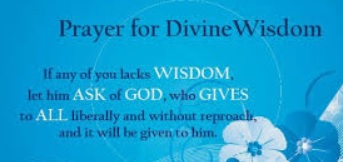
Christians refer to this trust wisdom, love, and desire as God or the Divine or the Creative Spirit. (Rohr)
Have a desire to have wisdom and ask the Lord for it. God said that if you delight yourself in Him He will grant the desires of your heart (Psalm 37:4). However, you must ask in faith, otherwise you will not receive anything from Him (James 1:5-7).
Not just knowledge but true wisdom is needed in a time of death and profound change. While others all about her were freaking out about nature gone awry, Julian kept her spiritual and intellectual composure, staying grounded and true to her belief in the goodness of life, creation, and humanity and, in no uncertain terms, inviting others to do the same. Julian’s response to the pandemic [is] amazingly grounded in a love of life and gratitude. Julian speaks to us to wake up and to go deep, to face the darkness and to dig down and find goodness, joy and awe. And to connect anew to the sacredness of life. (Rohr,4/5/21)
Our failings and transgressions are simply an opportunity to learn and grow, and should be honored as such, but not dwelled upon. (Rohr,4/6/21)
Humility, Dying to Self, Emptiness, Non-attachment, Surrender
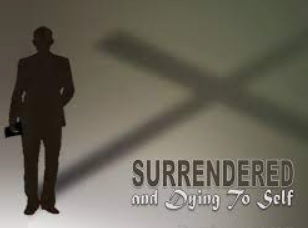
Dying to ourselves — to our own illusions, pretenses, narcissism, and self-defeating behaviors. (Rohr,4/2/21)
A man must die, that is, he must free himself from a thousand petty attachments and identifications which hold him in the position in which he is.He is attached to everything in his life, attached to his imagination, stupidity, and sufferings. These I's must die in order that the big I may be born. One must awaken to his nothingness and helplessness and see in himself many things that are bound to horrify him. Then he can decide to throw it off, stop it, put an end to it. To know himself a man sees that he has nothing that is his own, his views, thoughts, convictions, tastes, habits, faults, and vices. In feeling this a man may feel his nothingness.(p 218, In Search of the Miraculous by Ouspensky)
The author of The Cloud of Unknowing is always saying you’ve got to balance your knowing with a willingness not to know. We have to enter the Cloud of Forgetting—to forget all our certitudes, all our labels, all our explanations, just forget them! They are nothing but our ego projecting itself and announcing itself. This kind of humility is the beginner’s mind. and then we must go into the Cloud of Unknowing, where we actually don’t need to label anymore; we don’t need to know that we know — which is faith because it is willingness to live with a certain degree of humility. For Buddhists, a beginner's mind refers to an urgent need to remain open, forever a student which says, “I’m a learner. I’ve got more to learn.” It has to do with humility before reality, and never assuming that I understand. Maybe there’s more that needs to show itself to me. (Rohr)
When we do NOT need to control the future, we are in very creative and liminal space where God is most free to act in our lives. (p19, Jesus' Alternative Plan)
Love, not knowledge, allowed Francis to enter into the great mystery we call “God.” As he entered into this mystery he discovered two principle features of God—the overflowing goodness of God and the humility of God. Francis came to know the God of humble love by meditating on and imitating the poor and humble Christ. Francis patterned his life ... after the gospel simplicity and humility of Jesus, whose self-emptying and letting go of power and prestige was at the heart of his divinity. Divine power is found in downward mobility and identification with human suffering, not in weaponry, status, or comfort. God’s love for the world is expressed in solidarity with the least. (Rohr)